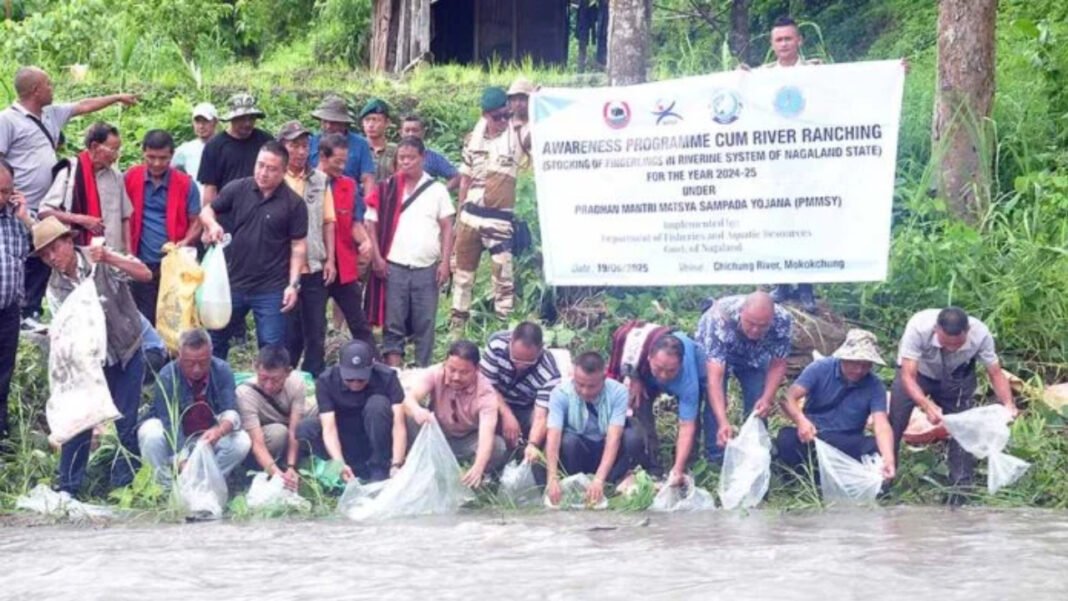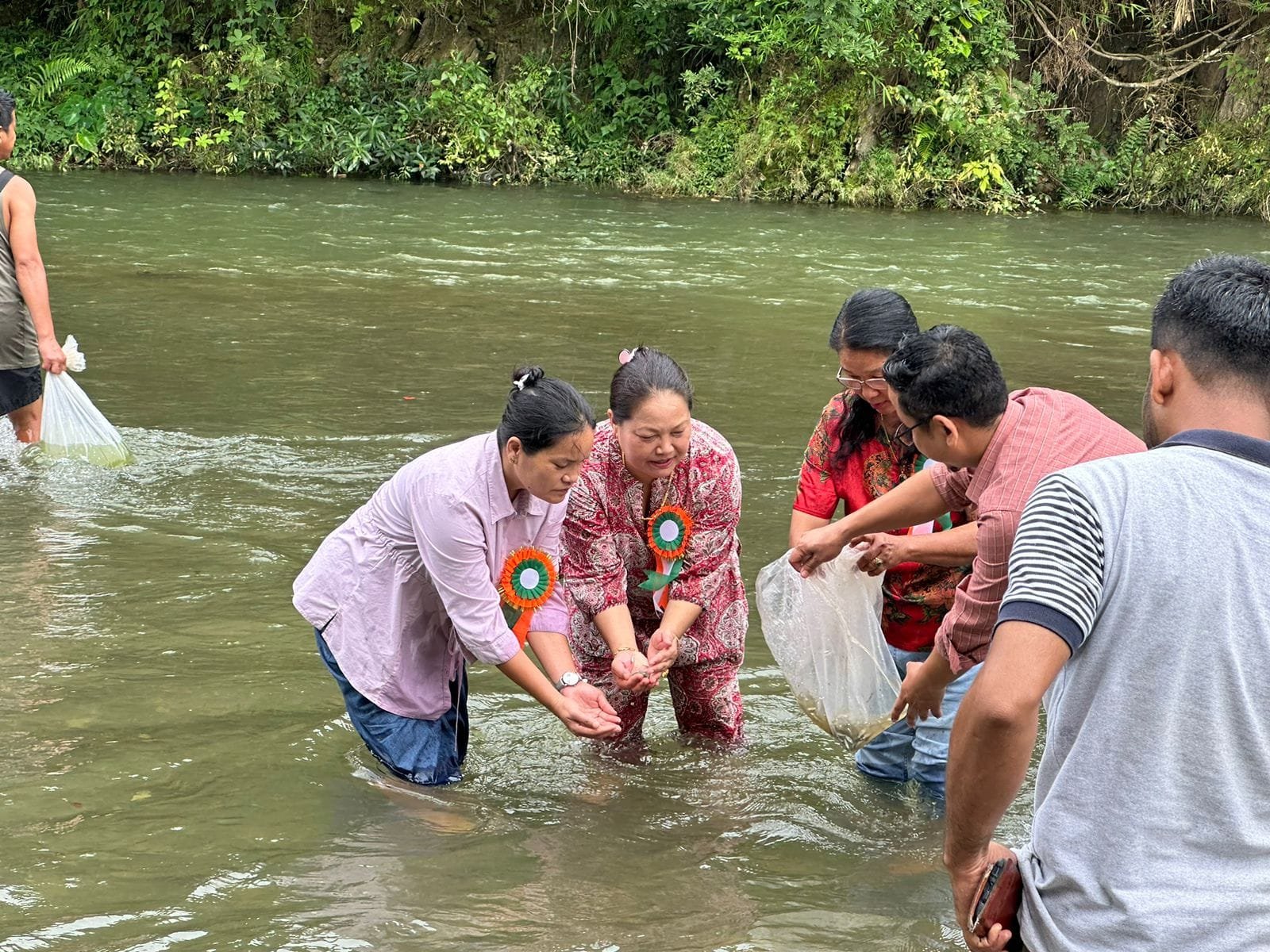HT Correspondent
DIMAPUR, June 19: In a major push towards sustainable fishery development and aquatic biodiversity conservation, the Department of Fisheries and Aquatic Resources, Government of Nagaland, organised a river ranching programme at the Chichung River in Mokokchung district on Thursday.
As part of the programme, one lakh fingerlings were ceremonially released into the river under the centrally sponsored Pradhan Mantri Matsya Sampada Yojana (PMMSY) for the year 2024–2025.
The river ranching programme aims to replenish natural water bodies with indigenous fish species, enhance inland fish production, and promote a balanced aquatic ecosystem.
This strategic initiative is part of a broader vision to strengthen India’s fisheries sector through scientific resource management and sustainable practices.
The release of fingerlings is expected to rejuvenate the fish population in the Chichung River, contributing to the ecological health of the water body and the economic wellbeing of communities dependent on it.
Director of the Department of Fisheries and Aquatic Resources, Rongsennungba, who was present at the event, emphasised the significance of river ranching as a long-term measure for ecological restoration and sustainable livelihood development.
Addressing the gathering, he stated, “This programme is not only about enhancing fish stock but also about ensuring that future generations have access to the same resources that we do today. The department is committed to promoting the fishery sector in the state, despite the limitations in infrastructure and funding.”
The director acknowledged the vital role that local communities play in conserving aquatic ecosystems. He called upon the host village, Longsa, and the neighbouring villages of Milong, Chubayimkum, and Moalenden, to act as custodians of the Chichung River and its aquatic life.
He urged the villagers to refrain from practices such as the use of explosives, chemicals, and electric shocks for fishing, all of which cause irreparable damage to the ecosystem.
Rongsennungba further appealed to the village councils to introduce and enforce strict regulations, including a total ban on fishing during the breeding season to allow for natural regeneration of fish populations.
“Breeding seasons are critical for the survival of aquatic species. If we interfere during this period, we disrupt the entire life cycle of these species,” he explained.
In addition, he encouraged the councils to promote traditional fishing methods that are environmentally sustainable and do not deplete aquatic resources.
“Only those practices which have minimal impact on the river’s natural balance should be permitted. What we preserve today is for posterity. It is our collective responsibility to protect these resources,” he said.
The programme saw the participation of officials from the department, local leaders, youth groups, and community members, all of whom expressed enthusiasm and support for the initiative.
A community interaction session was also held following the fingerling release, where department officials answered queries and provided information on best practices in fisheries management, pond construction, and government schemes under PMMSY.
Speaking to the press, community elders and fish farmers from the region expressed their gratitude to the department for organising the event and involving the grassroots in conservation efforts. “This kind of initiative gives us hope that our rivers and livelihoods can be preserved,” said one elder from Longsa village.
The PMMSY scheme, launched by the Ministry of Fisheries, Animal Husbandry and Dairying, Government of India, focuses on modernising and strengthening the value chain in the fisheries sector—from production to post-harvest management.
In Nagaland, the scheme has enabled several such initiatives, including pond development, hatchery support, capacity building for fish farmers, and community awareness campaigns.
Thursday’s programme in Mokokchung is seen as a milestone in the state’s efforts to mainstream river ranching and enhance ecological stewardship among rural communities.
Officials reiterated that similar programmes will be replicated across other districts in the coming months to cover more water bodies and maximise community participation in fishery resource management.
The event concluded with a collective pledge by community representatives to support conservation efforts, adopt ethical fishing practices, and work with the government to ensure that Nagaland’s rivers remain rich in biodiversity for generations to come.












